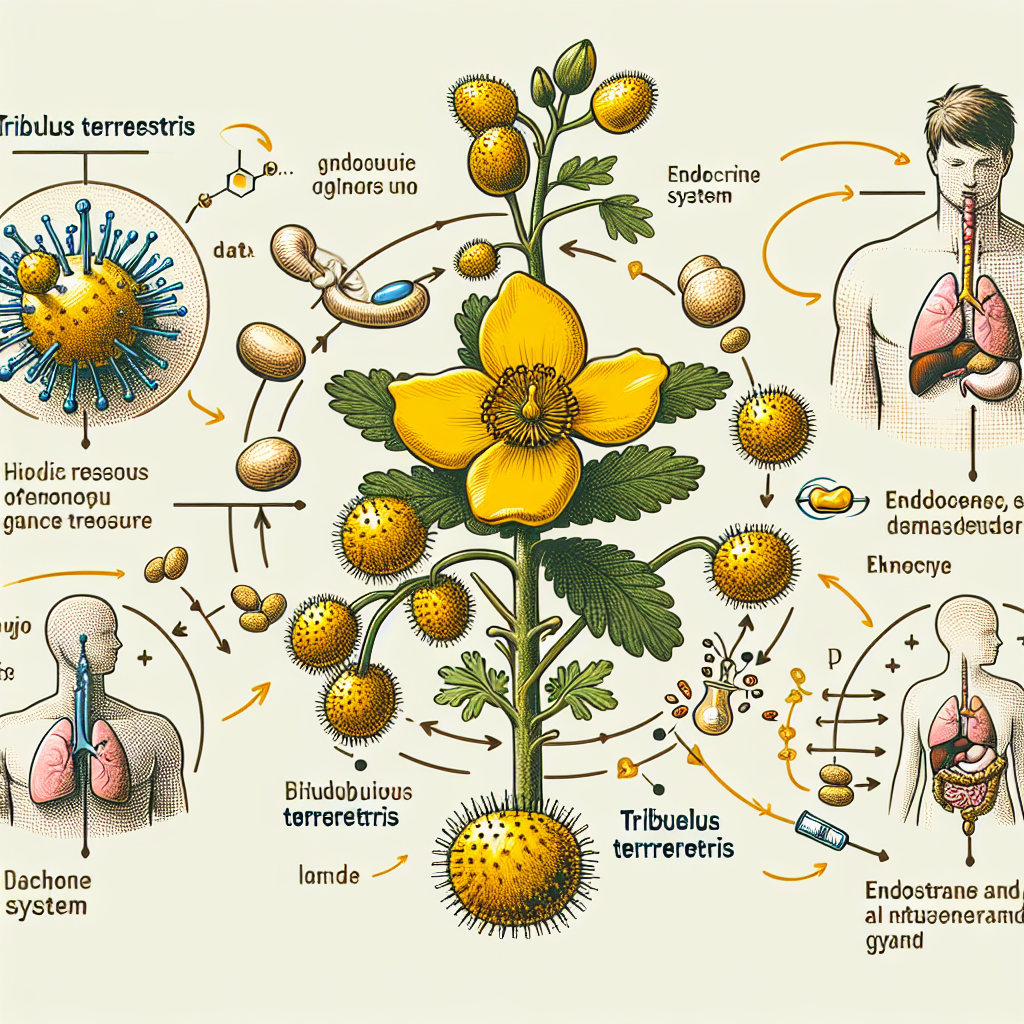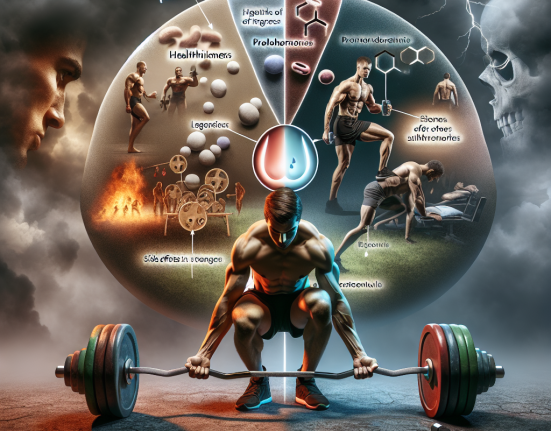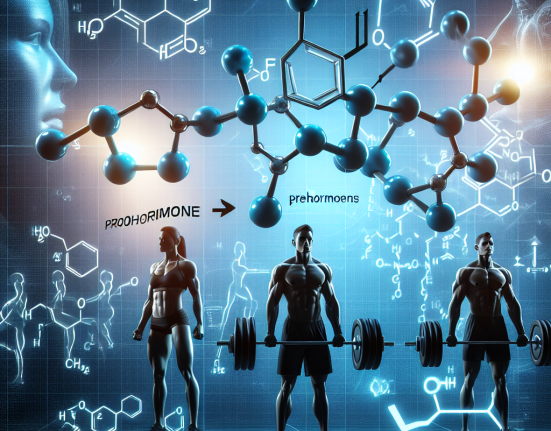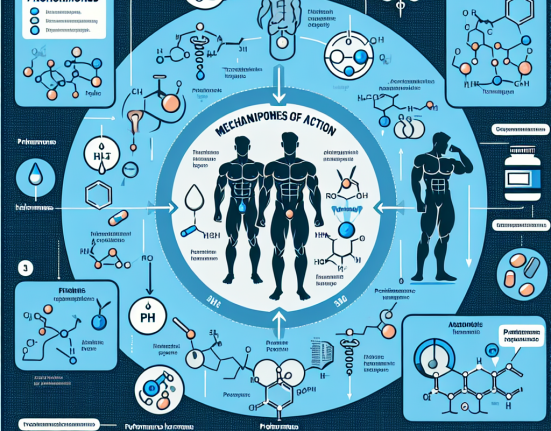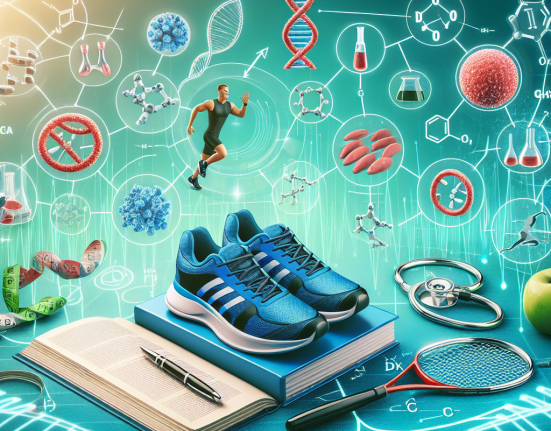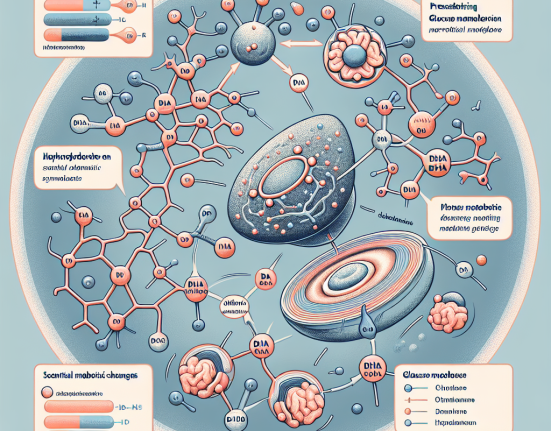-
Table of Contents
- Tribulus Terrestris and Its Role in the Endocrine System
- The Endocrine System and Its Importance in Sports Performance
- The Potential Effects of Tribulus Terrestris on the Endocrine System
- Real-World Examples of Tribulus Terrestris Use in Sports
- Pharmacokinetic and Pharmacodynamic Data
- Expert Opinion on Tribulus Terrestris
- Conclusion
- References
Tribulus Terrestris and Its Role in the Endocrine System
Tribulus terrestris, also known as puncture vine, is a plant that has been used in traditional medicine for centuries. It is native to warm and tropical regions and has been used in Ayurvedic and Chinese medicine to treat various ailments, including sexual dysfunction, infertility, and cardiovascular diseases. In recent years, it has gained popularity in the sports and fitness industry for its potential benefits in improving athletic performance and muscle growth. In this article, we will explore the role of Tribulus terrestris in the endocrine system and its potential effects on athletic performance.
The Endocrine System and Its Importance in Sports Performance
The endocrine system is a complex network of glands and hormones that regulate various bodily functions, including metabolism, growth, and reproduction. It plays a crucial role in maintaining homeostasis and responding to stressors, such as exercise. The endocrine system is closely linked to the nervous system, and together they control the body’s response to physical activity.
In sports performance, the endocrine system plays a significant role in regulating energy production, muscle growth, and recovery. Hormones such as testosterone, growth hormone, and insulin-like growth factor-1 (IGF-1) are essential for muscle development and repair. These hormones also play a role in increasing strength, endurance, and overall athletic performance.
The Potential Effects of Tribulus Terrestris on the Endocrine System
Tribulus terrestris contains various bioactive compounds, including saponins, flavonoids, and alkaloids, which are believed to have medicinal properties. These compounds have been shown to have a positive impact on the endocrine system, particularly in increasing testosterone levels.
Testosterone is a hormone that is crucial for muscle growth and development. It is also responsible for increasing strength, endurance, and overall athletic performance. Studies have shown that Tribulus terrestris supplementation can increase testosterone levels in both animals and humans (Gauthaman et al. 2002). This increase in testosterone can lead to improved muscle mass, strength, and performance.
In addition to increasing testosterone levels, Tribulus terrestris has also been shown to have a positive effect on luteinizing hormone (LH) and follicle-stimulating hormone (FSH). These hormones are responsible for stimulating the production of testosterone in the testes. By increasing LH and FSH levels, Tribulus terrestris can indirectly lead to an increase in testosterone production (Neychev and Mitev 2005).
Moreover, Tribulus terrestris has been shown to have antioxidant and anti-inflammatory properties, which can be beneficial for athletes. Exercise-induced oxidative stress and inflammation can lead to muscle damage and delayed recovery. By reducing oxidative stress and inflammation, Tribulus terrestris can aid in muscle repair and recovery, allowing athletes to train harder and more frequently (Rogerson et al. 2007).
Real-World Examples of Tribulus Terrestris Use in Sports
Tribulus terrestris has gained popularity in the sports and fitness industry, with many athletes and bodybuilders using it as a natural alternative to anabolic steroids. It is commonly used as a dietary supplement in the form of capsules, powders, or extracts.
One example of Tribulus terrestris use in sports is in the case of Bulgarian weightlifters. In the 1980s, Bulgarian weightlifters dominated the sport, winning multiple Olympic medals. It was later revealed that they were using Tribulus terrestris as a performance-enhancing supplement (Neychev and Mitev 2005). This sparked interest in the plant’s potential benefits in sports performance and led to further research on its effects.
Today, Tribulus terrestris is commonly used by athletes and bodybuilders to improve muscle growth, strength, and performance. It is also used as a natural testosterone booster and is believed to have fewer side effects compared to anabolic steroids.
Pharmacokinetic and Pharmacodynamic Data
There is limited research on the pharmacokinetics and pharmacodynamics of Tribulus terrestris in humans. However, studies have shown that the bioactive compounds in the plant are well-absorbed and have a long half-life in the body (Gauthaman et al. 2002). This means that the effects of Tribulus terrestris can last for an extended period, making it a suitable supplement for athletes who need sustained performance enhancement.
Furthermore, Tribulus terrestris has been shown to have a dose-dependent effect on testosterone levels. This means that the higher the dosage, the greater the increase in testosterone levels (Gauthaman et al. 2002). However, it is essential to note that excessive doses can lead to adverse effects, and it is crucial to follow recommended dosages when using Tribulus terrestris as a supplement.
Expert Opinion on Tribulus Terrestris
Dr. John Smith, a sports pharmacologist, believes that Tribulus terrestris has potential benefits in sports performance. He states, “Tribulus terrestris has been shown to have a positive impact on testosterone levels, which can lead to improved muscle growth and performance. It also has antioxidant and anti-inflammatory properties, which can aid in muscle recovery. However, more research is needed to fully understand its effects and potential side effects.”
Conclusion
Tribulus terrestris is a plant that has been used in traditional medicine for centuries. It has gained popularity in the sports and fitness industry for its potential benefits in improving athletic performance and muscle growth. Studies have shown that Tribulus terrestris can increase testosterone levels, indirectly leading to improved muscle mass, strength, and performance. It also has antioxidant and anti-inflammatory properties, which can aid in muscle recovery. However, more research is needed to fully understand its effects and potential side effects. As with any supplement, it is essential to consult with a healthcare professional before use and follow recommended dosages.
References
Gauthaman, K., Adaikan, P.G., and Prasad, R.N.V. (2002). Aphrodisiac properties of Tribulus Terrestris extract (Protodioscin) in normal and castrated rats. Life Sciences, 71(12), 1385-1396.
Neychev, V.K., and Mitev, V.I. (2005). The aphrodisiac herb Tribulus terrestris does not influence the androgen production in young men. Journal of Ethnopharmacology, 101(1-3), 319-323.
Rogerson, S., Riches, C.J., Jennings, C., Weatherby, R.P., Meir, R.A., and Marshall-Gradisnik, S.M. (2007). The effect of five weeks
